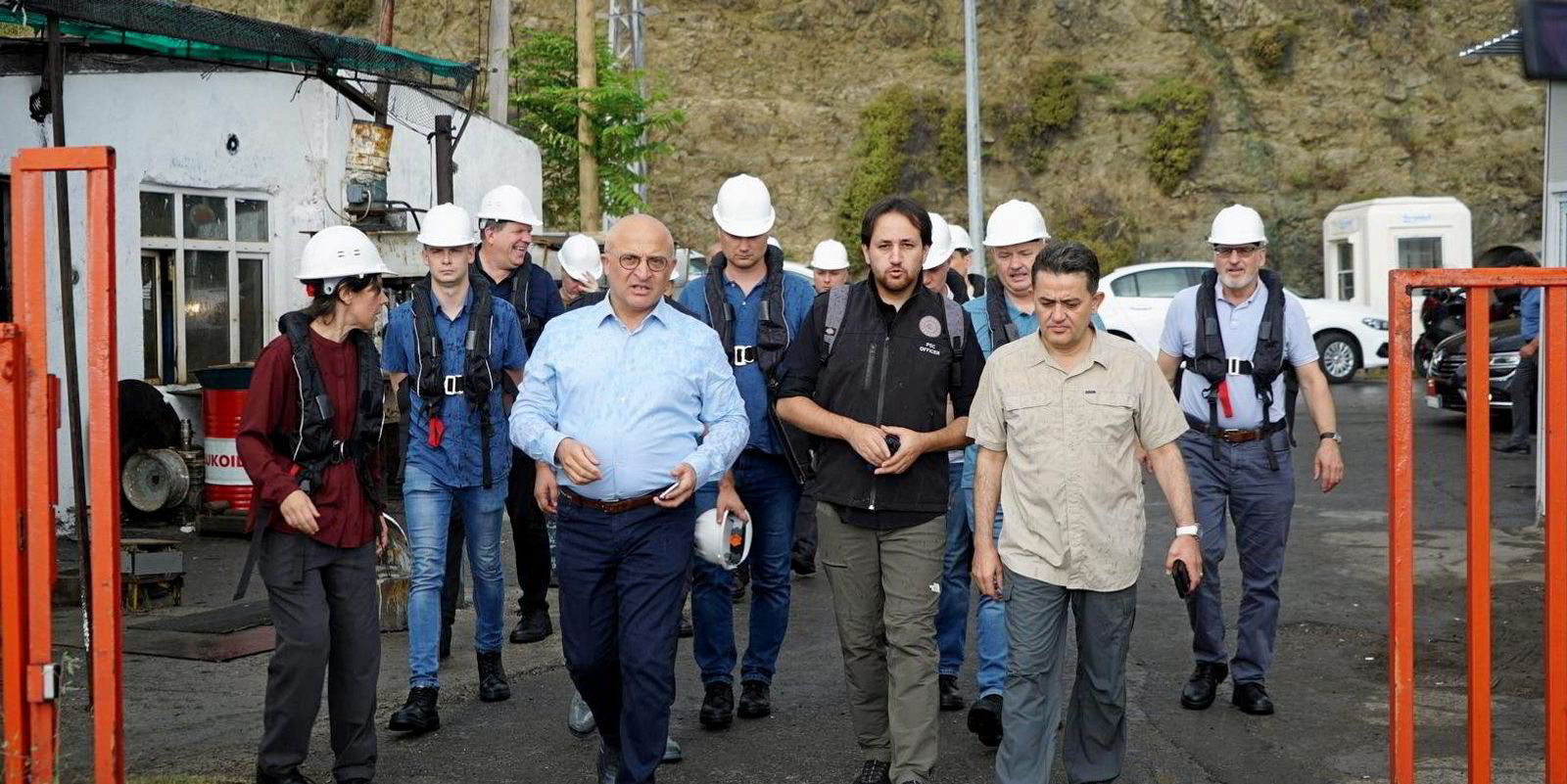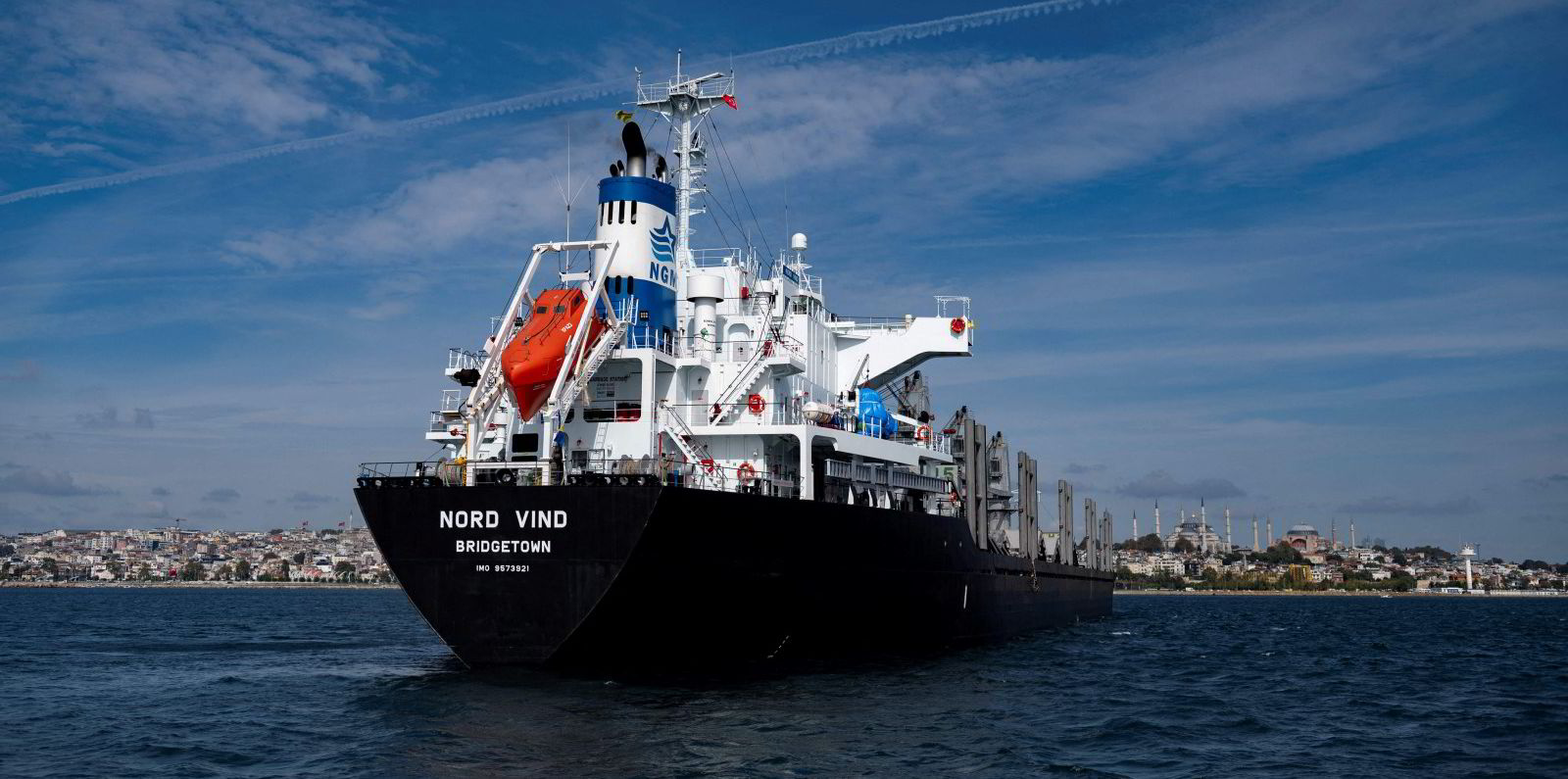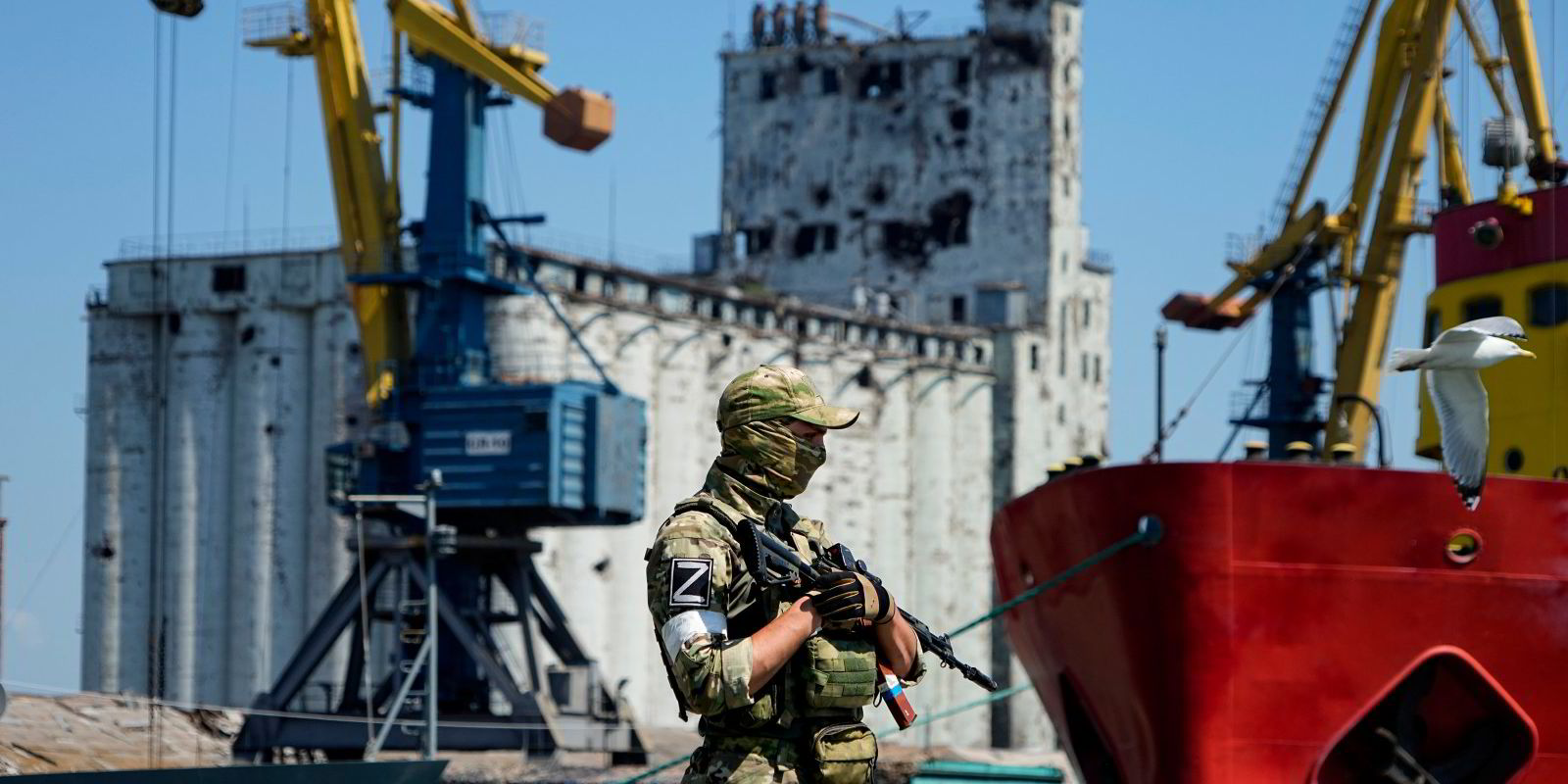The United Nations has urged renewal of a deal to export Ukrainian grain as its expiration date nears and vessel delays are piling up.
According to Ukraine President Volodymyr Zelenskyy, about 150 ships are currently clogged in the Bosphorus, waiting for international surveyors to inspect them under the terms of a humanitarian seaborne trade corridor agreed in July and running out on 22 November.
That would be a stark increase from the 120-ship backlog that the UN acknowledged on 7 October.
The Istanbul-based Joint Coordination Centre— the UN body in charge of operating the inspection scheme — said at the time that the congestion was a result of the success of the scheme and to failure by some shipowners to comply with its inspection procedures.
Zelenskyy, however, blamed Russia.
“This is an artificial queue,” he said in a speech on Friday. “It arose only because Russia is deliberately delaying the passage of ships.”
Zelenskyy didn’t elaborate on how Russia is supposedly slowing down the process.
The only conceivable way Russia could obstruct would be by failing to send more surveyors to Istanbul to speed up inspections.
Vessel vetting
Under the terms of the Black Sea Grain Initiative, empty inbound and laden outbound ships must be vetted by UN, Turkish, Russian and Ukrainian officials to check documentation and make sure there are no weapons or unauthorised cargo and personnel on board.
“The rate of inspections has put a significant demand on the available… inspection teams,” the coordination centre said on 7 October.
To cope with the backlog, the JCC said it increased surveyor teams from two to four, and occasionally five. This made 11 inspections per day possible — up from four in August, when the scheme got up and running.
Putting a lid on food prices
As TradeWinds already reported, high freight rates have of more than $20,000 per day net of insurance lured shipowners to rush sending vessels in war-torn Ukraine to help ship its grain out.
According to the latest UN Conference on Trade and Development (UNCTAD) figures, nearly 8m tonnes of grain and foodstuff have left Ukrainian ports under the scheme.

Ukraine’s seaborne grain shipments, who had collapsed to near zero after Russia invaded on 24 February, thus reached between 40% and 50% of their pre-war level.
Before the war, 90% of Ukrainian grain was exported through sea ports. Following Russia’s invasion, the share dropped to 20%. After the grain iniative, it rose to 36% again.
Ukrainian grain exports out of the ports of Odesa, Chornomorsk and Pivdennyi/Yuzhny are not just critical to boost Ukrainian coffers. They are also instrumental in keeping world food prices down.
“It’s critical to renew the initiative next month,” UNCTAD said.
According to the agency, the grain initiative has helped push down historically high maize and wheat prices. But now, they’ve started climbing again.
“Prices have begun to rise again amid mounting concerns about whether the BSGI will be renewed, and the threat of further disruptions to trade in the Black Sea and the closure of grain corridors,” UNCTAD said.
Speculation that the agreement might not be extended have intensified as its initial expiration deadlines nears and the Ukraine war turns against Russian President Vladimir Putin.
Putin has already said that Russia has been “screwed over” by the deal.
The Russian will probably seek to leverage the deal against the lifting of some western sanctions against his country.
Putin has also criticised the deal over the fact that most of Ukraine’s grain exports are destined for developed countries rather than relieving hunger in the third world.
The UNCTAD figures released on 20 October partly bear out that criticism.
According to the UN agency’s report, 999,200 tonnes of Ukrainian wheat have been transported to developed countries since the BSGI started.
Least-developed countries, by contrast, received just 424,600 tonnes of wheat over the same period. The lion's share of that — 210,000 tonnes — went to Bangladesh.
According to UNCTAD, developed countries have also scooped up 68% of all maize exports under the scheme.
Dozens of grain-laden ships left Ukraine since August but only six of them were chartered by the UN World Food Programme for poor countries such as Yemen.
Meanwhile, Russia is said to continue to siphon off large amounts of looted grain from occupied Ukrainian territory.
According to latest reports by German broadcaster NDR, 20 bulkers laded with such grain have left the Crimean port of Sevastopol since the war began for destinations such as Syria, Russia or Turkey.






